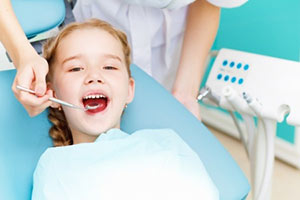Baby Teething Tips: Do Amber Teething Necklaces Work?
April 16th, 2015
 It’s hard to see your baby in pain while they’re teething. There’s no doubt about it. Parents are always looking for new ways to help their children feel better while their first set of teeth is growing in. To help give their babies an alternative teething relief, many parents have started using Amber Teething Necklaces.
It’s hard to see your baby in pain while they’re teething. There’s no doubt about it. Parents are always looking for new ways to help their children feel better while their first set of teeth is growing in. To help give their babies an alternative teething relief, many parents have started using Amber Teething Necklaces.
These necklaces have been around for a while, but have continued to become more and more popular in the US over the years. All over the Internet, parents claim that these necklaces have done miracles for their baby’s discomfort. In reality, though, there is no concrete evidence that they work, and they pose a hazard to young children’s health.
How Are Amber Teething Necklaces Supposed to Work?
Manufacturers claim that amber is a natural European teething remedy for babies between the ages of 3 months and 2 years. While the necklace is worn around a baby’s neck, the warmth of the baby’s body is said to release natural healing oils from the amber. After these oils are supposedly absorbed by the baby’s skin and transported into the bloodstream, they are said to relieve pain and other common teething symptoms, such as swollen gums, fevers and red cheeks. Succinct acid is supposed to be the primary healing component in amber.
Does the Amber Teething Necklace Actually Work?
Unfortunately, there’s no evidence that amber teething necklaces actually work. In fact, in a study published in 2012 in The Archives of Pediatrics, researchers describe the teething necklace as “ineffective,” a “quack remedy,” and “dangerous.”
In an interview with the New York Times, Pediatrician Dr. Natasha Burgert says that there are two major risks when it comes to babies wearing amber teething necklaces: strangulation and choking. The Center for Disease Control notes that unintentional suffocation is the leading cause of fatal and nonfatal injury among infants and young children - the same age group that would be wearing the necklaces. To be fair, many amber necklaces come with safety clasps and knotting features to reduce the risk of suffocation. However, it’s not worth the potential hazard, especially when there are other proven and safe remedies out there for teething.
Other Teething Remedies
We here at Water Tower Dental Care suggest using these traditional and proven teething techniques, rather than the potentially hazardous amber teething necklaces.
- Rubber Teething Rings: Choose toys that are safely designed for a teething baby. The pressure of the baby chewing on the ring will help soothe their painful gums.
- Light Massage: Lightly massaging your baby’s gums with clean hands can help them feel better, at least temporarily.
- Cold and Flexible Stuff: Cold objects work as an anesthetic to pain. The American Academy of Pediatrics suggests giving a teething child cold spoons, clean and wet washcloths, frozen bagels or refrigerated teething rings. Just make sure to keep an eye on your child when they use these objects and make sure they’re safe.
- Medication: The American Academy of Pediatrics states that acetaminophen (Tylenol) or ibuprofen can be used for severe pain, but parents should get instruction on safe dosing first. Avoid using benzocaine-containing teething gels for infants or children under 2 years old.
Teething isn’t fun for children or adults. But hopefully, the safe solutions above help to make this process a little bit easier. If you’re worried about your baby’s teeth, free to bring them into Water Tower Dental Care, Chicago’s #1 rated dentistry. We would love to help you put your child on a path to a healthy, bright smile.

 For the young and old, teeth grinding is a serious concern. Thankfully there are methods to stopping teeth grinding before it gets too serious. For the young, however, this can be harder to do than for an adult. Children have less of a conscious attitude toward health than an adult, who understands the cause and effect of such bad habits. For children, it will take the help of their parent to stop teeth grinding before it becomes a serious health concern.
For the young and old, teeth grinding is a serious concern. Thankfully there are methods to stopping teeth grinding before it gets too serious. For the young, however, this can be harder to do than for an adult. Children have less of a conscious attitude toward health than an adult, who understands the cause and effect of such bad habits. For children, it will take the help of their parent to stop teeth grinding before it becomes a serious health concern. When it comes to your child, there are many firsts that must be determined. A very important first for a child is the first time they visit the dentist. At Water Tower Dental, we make sure that this fist visit is a great experience that helps a child learn to love cleaning their teeth and visiting the dentist for years to come. But when exactly should your child start to visit the dentist?
When it comes to your child, there are many firsts that must be determined. A very important first for a child is the first time they visit the dentist. At Water Tower Dental, we make sure that this fist visit is a great experience that helps a child learn to love cleaning their teeth and visiting the dentist for years to come. But when exactly should your child start to visit the dentist?




 Website Powered by Sesame 24-7™
Website Powered by Sesame 24-7™